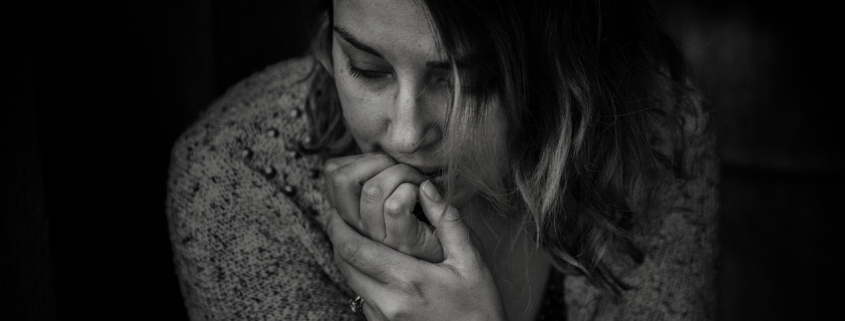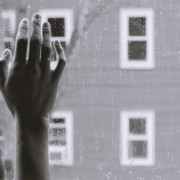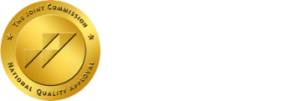9 Effective Coping Strategies for Major Depressive Disorder
Major depressive disorder (MDD) is a mental health condition characterized by a persistent depressed mood. Major depression is a common mental health disorder. The National Institute of Mental Health estimates that around 21.0 million adults in the U.S. have experienced at least one depressive episode.
Symptoms of MDD include:
- Persistent feelings of sadness
- Loss of interest in most or all activities
- Sleep disturbances
- Irritability, angry outbursts, or excessive crying
- Lack of energy
- Appetite or weight changes
- Anxiety or restlessness
- Feelings of worthlessness or guilt
- Trouble concentrating, making decisions, or remembering things
- Frequent thoughts of death or suicide
The exact cause of MDD is unknown; however, it’s believed that various factors may contribute to the disorder’s development. These factors include biological differences, brain chemistry, life events, hormones, and inherited traits.
If you live with major depression, you know how severe the symptoms can be. Depression can interfere with your daily life, but there are coping strategies you can utilize to improve your mental health.
Tips for Combatting Major Depressive Disorder
Here are nine effective tools for coping with major depressive disorder:
#1 Move Your Body
Exercising regularly is a great way to combat depression. It has been shown to release feel-good chemicals called endorphins and other brain chemicals that improve your well-being.
To begin working out, it’s best to start with less strenuous exercise, develop a workout plan, and stay committed to it.
#2 Socialize
When you’re depressed, it’s common to withdraw and isolate yourself. However, this isn’t a good time to be closed off from your loved ones. Try to make plans with friends or family and follow through with them.
Another way to socialize is by volunteering. This is a great opportunity to serve others, reduce stress, and increase positive feelings.
#3 Meditate
Meditation can help you learn to cope with feelings and symptoms associated with depression. Frequent meditation can change how your brain responds to stress and anxiety, which often trigger a depressive episode.
#4 Express Yourself Through Writing
Certain forms of writing, such as journaling, offer a chance to release your frustrations and find ways to work through what you’re experiencing. During your journaling session, try not only to focus on your negative experiences but also use this time to write about your accomplishments.
Keeping a journal also allows you to reflect on your progress. You can try creative writing through other avenues like poetry, songwriting, or creating stories.
#5 Practice Self-Care
Taking care of yourself when you live with depression can be challenging, but it’s essential to managing your mental health. Not practicing self-care can increase the severity of your symptoms, causing you to feel worse.
When you feel consumed by depression, you may not feel like doing basic tasks, like showering or cleaning. However, finding the strength to do these things can help you feel better in the long term.
#6 Get Creative
Sometimes, it helps to use your emotions to fuel your creative energy. Expressing yourself creatively can be cathartic and allows you to experience more positive emotions.
Getting creative can also reduce stress and anxiety, which often co-occur with depression. Creativity allows you to engage in artistic activities while healing.
A few ways you can be creative include:
- Painting
- Drawing
- Playing a musical instrument
#7 Do Things to Increase Your Self-Esteem
Often with depression comes low self-esteem, meaning depression can cause feelings of worthlessness and lead to negative self-talk. One way to increase your self-esteem is by practicing positive self-talk and challenging negative thoughts by replacing them with more optimistic ones.
When you have low self-esteem, you typically view your life in a negative light. It’s important to work on being kind to yourself. Other strategies for improving self-esteem include:
- Recognizing what you’re good at
- Fostering healthy relationships
- Avoiding comparisons
- Reciting positive affirmations
- Finding a new hobby
#8 Rely on Your Support System
Don’t be afraid to ask for what you need. Depression can leave you feeling alone and like no one cares, but it’s helpful to reach out to your friends and family when you need to lean on them. If you don’t have loved ones you trust, another option is to join a support group for people who are also seeking recovery from their mental health disorders.
#9 Find a Therapist
Sometimes we try all the strategies in our toolkit to help us feel better, and it’s still not enough. If you find that you’re still struggling after making positive changes, it may be time to find a therapist who can help you manage MDD.
Depression isn’t something you can just snap out of. Working with a team of mental health professionals who are passionate about ensuring you receive the mental health care you deserve can make a difference in your life.
Major Depressive Disorder Is Treatable
You don’t have to struggle alone. With the right treatment plan, you will begin to see an improvement in your symptoms and quality of life. Yes, symptoms of depression can cause severe impairment, but they don’t have to. Utilizing these coping strategies and reaching out for support when you need it can help you feel better.
Major depressive disorder can sweep in and consume you. Fortunately, it’s treatable. When you implement the right strategies, you may find an improvement in your symptoms; however, if you need extra support, help is available. Located in Laguna Beach, California, Alter Wellness Care is a world-class mental health treatment program designed to treat mental health disorders like major depression. Our team of qualified mental health providers is here to assist you in developing the skills necessary to combat depression. We do this by using different therapy modalities and holistic practices to help provide you with relief from your symptoms. If you or a loved one is struggling with major depressive disorder, call us today at (866) 311-3510.












Leave a Reply
Want to join the discussion?Feel free to contribute!